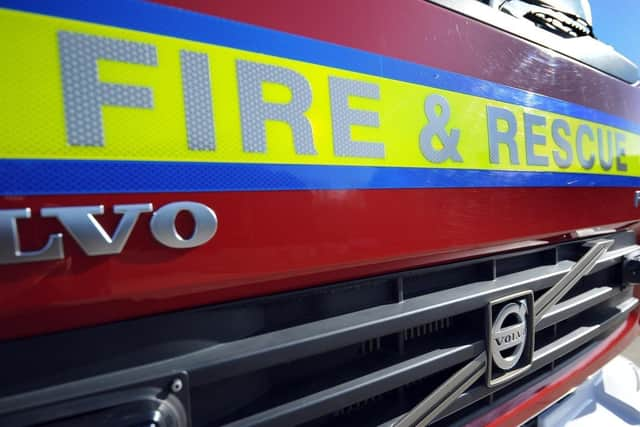East Sussex fire service will no longer attend some ‘low risk’ alarms
and live on Freeview channel 276
East Sussex fire service said it will no longer attend some alarms from ‘low risk’ properties.
East Sussex Fire and Rescue Service said due to false alarms it will not attend those at ‘low risk’ commercial premises between 9am–5pm from Monday–Friday – except bank holidays.
Advertisement
Hide AdAdvertisement
Hide AdThe service said it will attend the alarm if it receives telephone confirmation there is a fire.


A spokesperson from the service said, “Low risk premises are classified as premises with no sleeping risk - such as offices, shops, factories, pubs, clubs and restaurants.
“In these premises, when people are present, trained members of staff are able to confirm there is a fire and call 999 for the fire service; we then send the appropriate resources to deal with the incident.
“When people are not present, such as when businesses are closed typically between 5pm and 9am and at weekends and bank holidays, the life risk is very low, however, the impact on the business may be greater. Therefore at these times we continue to respond to automatic fire alarms in the normal way.”
Advertisement
Hide AdAdvertisement
Hide AdThe plan has been introduced due to the high number of times alarms sound and resources are sent to a scene when there is no fire, according to the service.
George O’Reilly, group manager for protection, said, “These cause significant disruption to our training, fire safety and community safety work and crucially while firefighters are investigating the cause of the alarm they cannot attend emergencies where lives are at risk.
“We have been working with premises to help them understand how they can help reduce false alarms from automatic systems.
“The most important thing to remember is that if you have a fire or can see other signs of a fire such as smoke, call 999.
Advertisement
Hide AdAdvertisement
Hide Ad“If you are in a commercial building and the fire alarm sounds, follow the evacuation guidance and instructions from staff.
“Working with businesses we can help make sure our firefighters are using their time effectively, responding to emergencies, not false alarms.”
The fire service said some of the measures they expect to be carried out include reviewing the premises’ fire risk assessment and emergency plan, training an adequate number of staff to investigate fire alarms to establish the cause and to call the service if there is a fire, and updating alarm companies and insurers.
The service also urged people to investigate what caused false alarms in the past and to speak to their fire alarm operator about any possible solutions.
READ THIS: Eastbourne e-scooter is seized by police